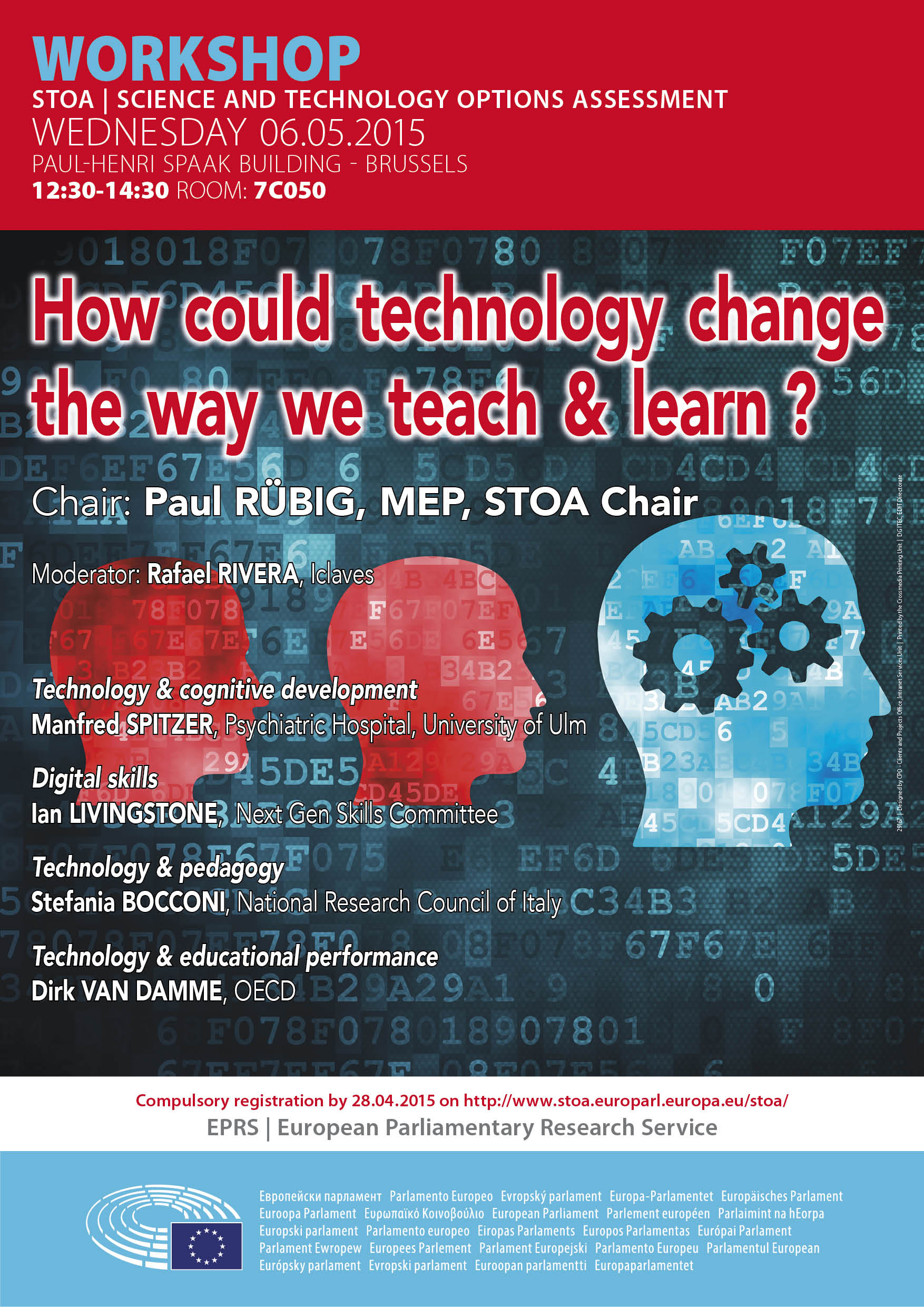Workshop hashtag: #TeachTechSTOA
Webstreaming: http://eptwitter.eu/TeachtechSTOA
STOA website: http://www.europarl.europa.eu/stoa/cms/home/events/workshops/teaching
Written by Nera Kuljanic and Sara Cagol
On Wednesday 6 May 2015, the Science and Technology Options Assessment Panel (STOA) will host the workshop ‘How could technology change the way we teach and learn?’, as a follow-up to a recently published STOA study. The event will be chaired by the STOA Chair, Dr Paul Rübig, With the programme featuring some thought-provoking speakers, this workshop aims at opening the debate on how technology influences the skills and knowledge we acquire and how we acquire them.
 But what is the impact of ICT on human cognitive development? Should technology be considered a disruptor of normal child development? What are we gaining and what do we lose when embracing digital technology as part of our daily lives? Professor Manfred Spitzer, psychiatrist and author of the book ‘Digital dementia’ will share his views on this topic.
But what is the impact of ICT on human cognitive development? Should technology be considered a disruptor of normal child development? What are we gaining and what do we lose when embracing digital technology as part of our daily lives? Professor Manfred Spitzer, psychiatrist and author of the book ‘Digital dementia’ will share his views on this topic.
Which skills do students and teachers need in order to benefit from the integration of technology in education, and will these be the same in the future? This workshop is an opportunity to hear what Ian Livingstone, a prominent figure in the UK video games industry, has to say. The speaker, in fact, advocates a reform of the UK school curriculum and is, more specifically, working on setting up a secondary school that would teach computing and foster curiosity and innovation.
There are different directions education can take when technology becomes an integral part of it, and pedagogical practices change, as Stefani Bocconi from the National Research Centre of Italy will explain. But are our children prepared to learn via digital devices? What about teachers and new teaching methodologies fostered by technology? Is innovation of the curricula what Europe needs to reverse this trend of lagging behind some other developed economies as far as digital competences and e-skills are concerned? And to equip all societal actors – students, teachers, families, and communities – with the skills required by the digital economy, increasing competitiveness and employability?
The STOA study found that, on average, EU performance in education is weak, and the percentage of low-performing students is high, especially in comparison with some Asian countries, such as Japan and South Korea. Dirk Van Damme from OECD will speak about the effect of technology on educational performance. Could educational technology contribute to maintaining or even increasing the productivity level of an ageing workforce, thus increasing the competitiveness of the EU workers in a global and fast evolving economic environment? And what are the possible options for European policy makers to ensure that the education sector, but also all citizens, will keep up with technological developments and remain successful in the digital economy?
The STOA study concluded that it is not technology itself that matters the most; rather, it is how teachers, students, families, and schools use the technology. What are the long-term impacts of such technology-based innovative learning and teaching environment on society? Despite stakeholders’ best intentions, could technology actually foster socio-economic disparities? Could the use of cloud-based technologies at schools pose risks for the protection of personal data?
The workshop is an opportunity to discuss possible answers to these concrete, relevant and complex questions. STOA counts on your contribution to power a lively, productive and enriching debate.








Be the first to write a comment.